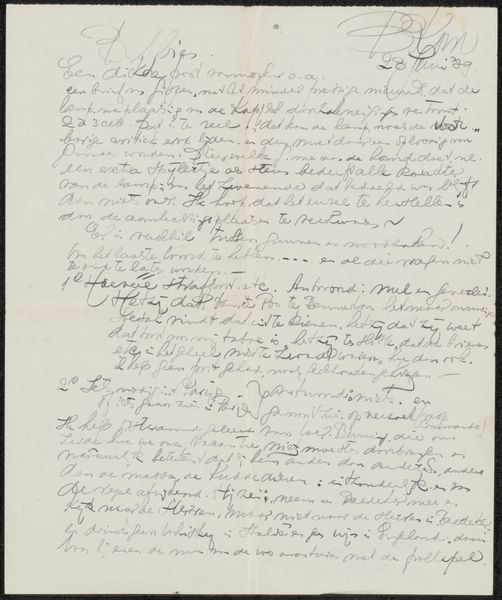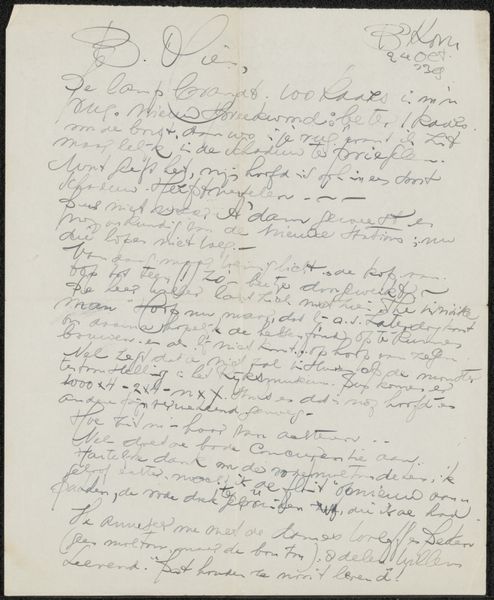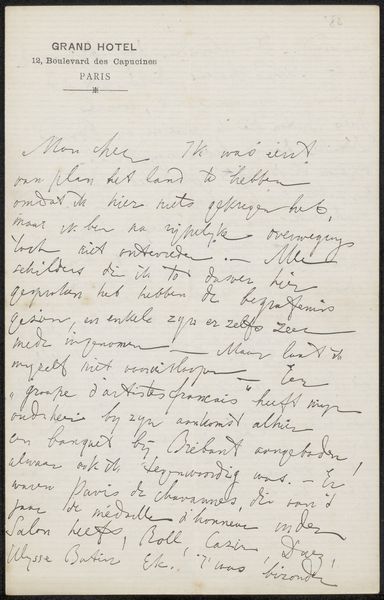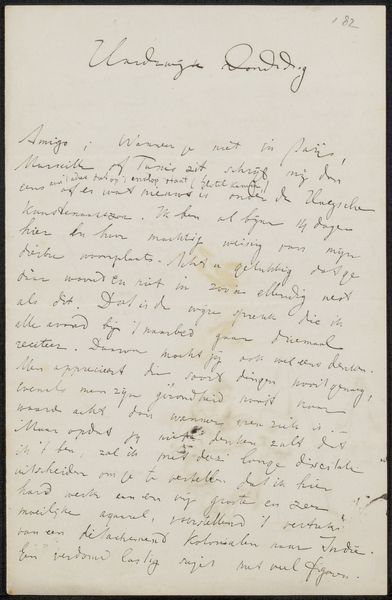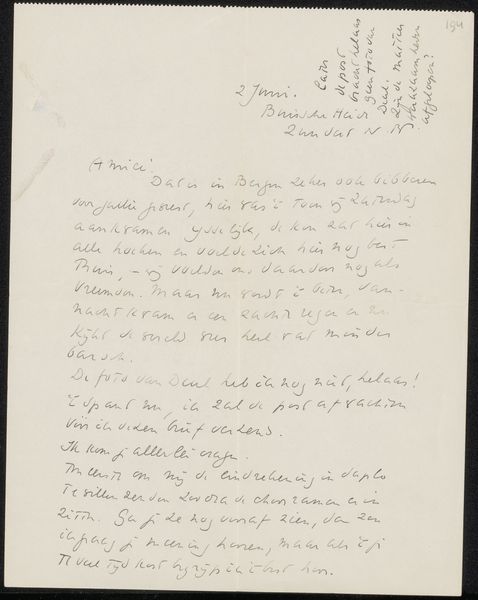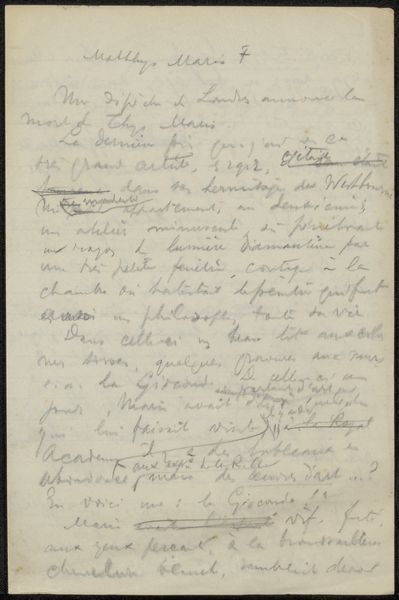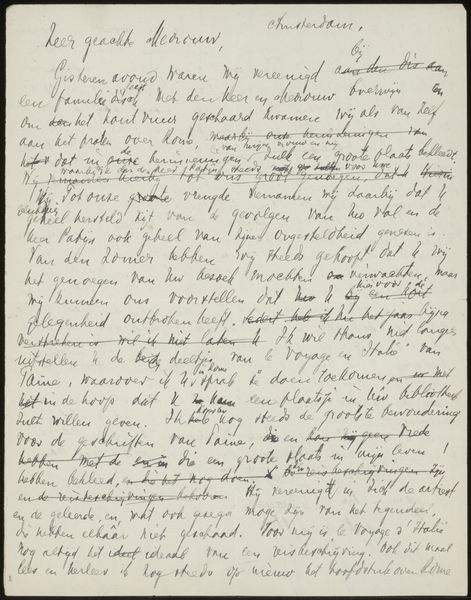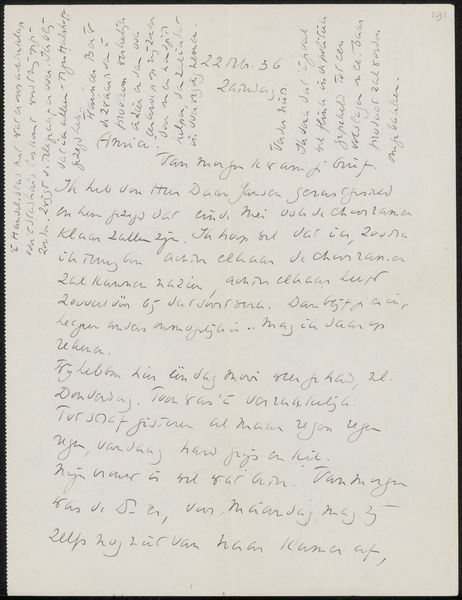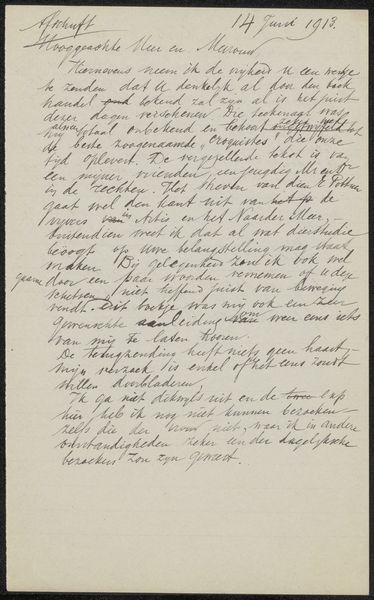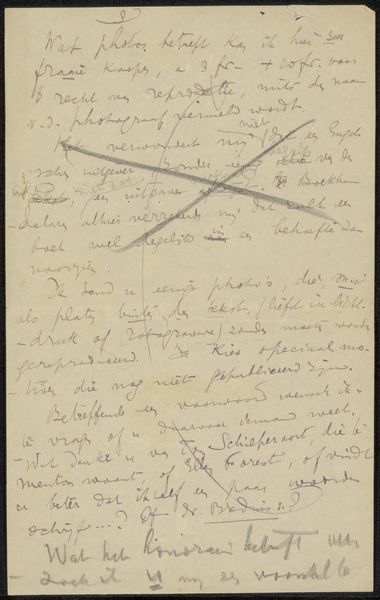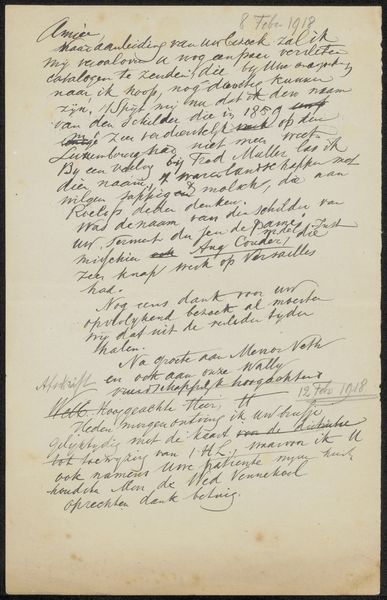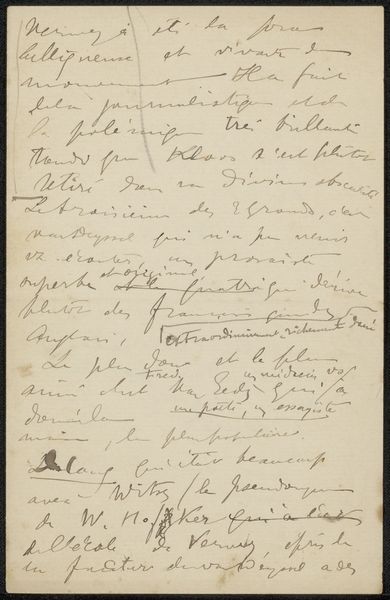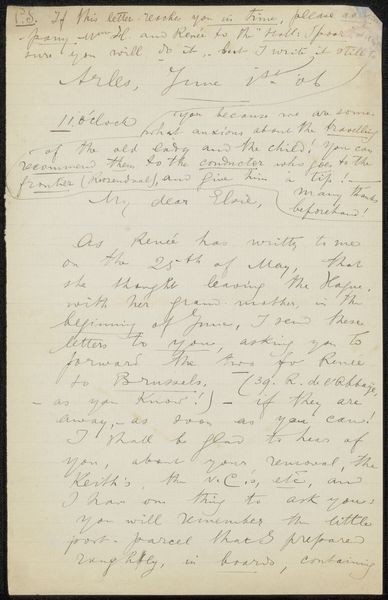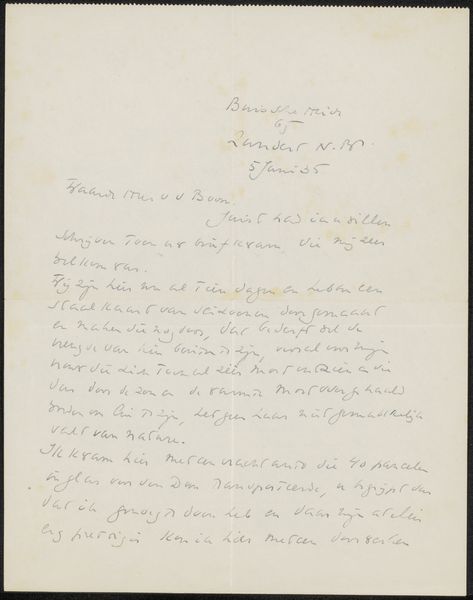
drawing, mixed-media, paper, ink, pencil
#
drawing
#
mixed-media
#
paper
#
ink
#
pencil
Copyright: Rijks Museum: Open Domain
Curator: Here at the Rijksmuseum, we’re looking at “Aantekening” which translates to “Note,” a piece created by Philip Zilcken before 1898. It's an intriguing mixed-media work, primarily using ink and pencil on paper. What's your initial response? Editor: It feels intensely private, almost like eavesdropping on someone’s thoughts. The density of the script, crammed onto the page...it creates a sense of urgency. I wonder what was so pressing. Curator: Zilcken was quite involved in the artistic circles of his time and contributed to various journals. His writings offer some insight into the cultural discourse, so this piece could be notes towards those larger works. Editor: So, part of a broader cultural or political debate, then? It feels like there’s mention of Europe, and officials, possibly relating to colonial administration... What stands out for me is how unfiltered it seems, not intended for public consumption. Curator: That's key. These private jottings can provide unvarnished perspectives compared to published articles of the time. It’s a historical artifact capturing social and intellectual history. Editor: I agree. Thinking about power structures during this period, who had access to written expression, what were they writing about, and who was excluded...that all adds layers of meaning to what might otherwise seem like simple notes. The illegible text might speak volumes, maybe a coded resistance to a societal force. Curator: I think illegibility is not about resistance in this case. It's very personal: like quick memory jogs about current debates, less carefully constructed thought-out essays. They're valuable nonetheless, giving insight into his world. Editor: For sure! They highlight the human element, connecting the personal and political realms of those in power in the era, and reminding us there are always undercurrents and nuances within. Curator: It provides context for his other more formal works. By appreciating the cultural frameworks surrounding these scribbles, we may better grasp Zilcken’s overall social views. Editor: Precisely. And for me, it’s a starting point. Let us consider: Who does the power of archival access really benefit? I love to start there when viewing artwork.
Comments
No comments
Be the first to comment and join the conversation on the ultimate creative platform.
